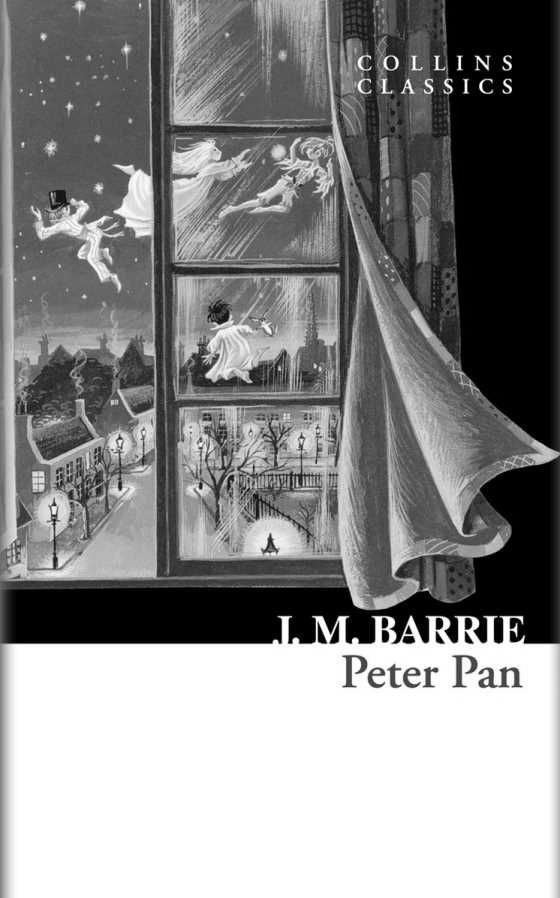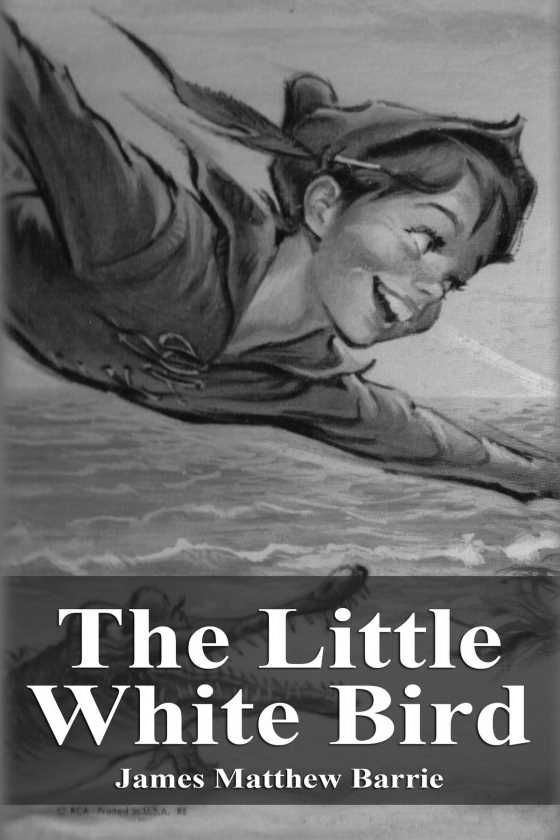 I’m quite confused by this story.
I’m quite confused by this story.
At 54 years old i really don’t remember Peter Pan from my childhood days, but i admit that i had the impression from films and things that he was quite a nice character — as was Tinkerbell. However, in this, the real story behind it all, Peter Pan isn’t really a nice character at all — and Tinkerbell certainly isn’t either.
Most of the time, Peter is nothing but a gloating little spoiled brat who always has to have his way else he spits his dummy out of his pram. And Tinkerbell, it has to be said, is a complete little bitch. But then you get moments in the story, in complete contrast, where the 2 of them are bestowed with all manner of wonderful virtues.
Who i did find interesting, however, was the character of James Hook, who was far more complex than the films, etc., would have us believe — frightened and out of his depth, yet somehow always managing to survive — until the end.
Apparently, the character of Peter Pan was based on Barrie’s older brother who died as a child, and therefore never grew up. So it does make one wonder just what Barrie thought about his older brother and how he was affected by his death and his parent’s attitude to it. He was 6 when his brother died and then sent away, from home to school, at 8. Barrie did write a biographical piece about his mother, Margaret Ogilvy, which maybe would unearth some clues, so i’m going to read that next to find out.
At the end of it, for now at least, i’m left thinking that this is nothing but a critique by Barrie of how his parents handled his brother’s death, and also parenting in general (as seems to be quite a bit of The Little White Bird). Although Barrie became a ward of other children, he never had any children of his own, so there is this to factor into these stories.
One of the things that also stands out for me, is how Peter chops of Hook’s hand and feeds it to the crocodile that is always ticking and haunting Hook for the rest of his life. Is this a metaphor concerning the death of his brother taking a piece of his parents with him and their inability to move on from the tragedy for the rest of their lives, forever ticking away reminding them of their own mortality? And Hook’s view towards the children maybe adds more clues.
At the end of the day, you can read Peter Pan as a shallow, children’s, make believe, bedtime story book, or you can look deeper into what Barrie’s drive was to write these books in the first place. It’s certainly very different to Lewis Carroll’s drive to write the “Alice and Wonderland” books — less said about that the better, i think. But whichever way you decide to read Peter Pan i think you’ll certainly enjoy it. It’s a beautifully written piece of Victorian literature that has stood the test of time and will undoubtedly stand up to a lot more time in the future.
As a bonus, this version of Peter Pan has a “Classic Literature, words and phrases” dictionary at the end (which is nearly as big as the book itself). So a great help for anyone wanting to have a good Vic Lit adventure.
Some more “Peter Pan and Neverland” books.

J. M. Barrie’s Page

 This is the very book wherein Peter Pan makes his first appearance. The parts within that include Peter Pan were later published as Peter Pan in Kensington Gardens which is not to be confused with the full Peter Pan story, which was subsequently published as Peter and Wendy or later, just simply,
This is the very book wherein Peter Pan makes his first appearance. The parts within that include Peter Pan were later published as Peter Pan in Kensington Gardens which is not to be confused with the full Peter Pan story, which was subsequently published as Peter and Wendy or later, just simply,